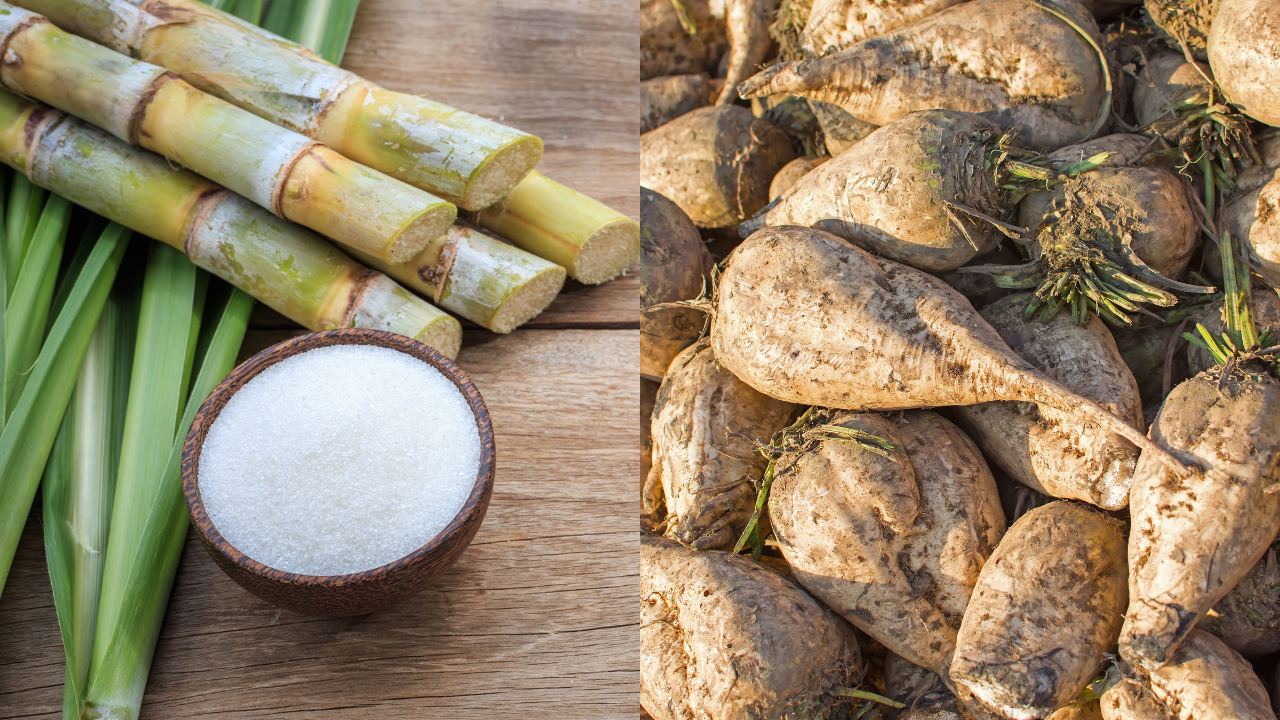When looking at beet sugar vs cane sugar, some argue that one melts better than the other.
Discover the Uses and Advantages of Beet Sugar Vs Cane Sugar in Your Daily Diet Plan
Discovering the unique top qualities of beet and cane sugar exposes greater than simply their sweetening abilities; it highlights their special impacts on wellness and cooking arts. Beet sugar, recognized for its refined taste, is commonly preferred in delicate treats, whereas cane sugar, with its hint of molasses, adds richness to robust recipes. Each kind holds its very own nutritional profile and glycemic ramifications, welcoming a much deeper understanding of their roles in a well balanced diet plan and lasting intake methods.
Beginning and Production Procedures of Beet and Cane Sugar

The unique environments and dirt types needed for expanding sugar beets and sugarcane add to distinctions in their farming methods and geographic distribution, affecting the economics and sustainability of their production. beet sugar vs cane sugar.
Nutritional Contrast In Between Beet Sugar and Cane Sugar
Regardless of stemming from different plants, beet sugar and cane sugar are nutritionally really comparable, both largely containing sucrose. Each gives concerning 4 calories per gram, translating to roughly 16 calories per tsp. Structurally, both sugars are composed of roughly 99.95% sucrose, with very little quantities of various other compounds like dampness and trace element, which do not significantly change their nutritional profiles.

Inevitably, when picking between beet sugar and cane sugar based upon nutritional material alone, both deal the same benefits and drawbacks as they are basically kinds of the very same particle-- sucrose, giving quick power without various other nutrients.
Effect On Health: Glycemic Index and Caloric Content
Discovering additionally right into the impacts of beet sugar and cane sugar on health and wellness, it is vital to consider their glycemic index and caloric content. The glycemic index (GI) of both beet and cane sugar is around 65, categorizing them as high-GI foods, which can create fast spikes in blood sugar degrees.
Each kind of sugar includes about 4 calories per gram, making their caloric material matching. For those keeping an eye on caloric consumption, particularly when managing weight or metabolic wellness problems, understanding this equivalence is crucial (beet sugar vs cane sugar). However, too much consumption of any kind of high-calorie, high-GI food can contribute to health problems such as weight problems, cardiovascular disease, and insulin resistance.
Environmental and Economic Considerations of Sugar Production
Beyond health and wellness influences, the manufacturing of beet and cane sugar additionally raises substantial ecological and economic problems. Sugar beet farming has a tendency to need cooler environments and has a lower geographical footprint contrasted to sugar blog here cane, which prospers in tropical regions.
In addition, making use of chemicals and fertilizers in both beet and cane sugar growing can lead to dirt deterioration and pollution, further affecting biodiversity and regional water bodies (beet sugar vs cane sugar). The option between growing sugar beet or cane typically rests on regional environmental conditions and financial factors, making the sustainability of sugar production an intricate issue
Culinary Applications and Flavor Distinctions
While the ecological and economic facets of sugar manufacturing are indeed significant, the selection in between beet and cane sugar additionally affects cooking discover this info here applications and flavor accounts. Beet sugar, originated from the sugar beet plant, is understood for its extremely neutral preference. This makes it a functional ingredient in cooking, where it does not change the flavor of other components. It dissolves promptly and is perfect for use in cakes, cookies, and pastries.
Walking stick sugar, extracted from sugarcane, commonly preserves molasses traces, which give a distinctive splendor and deepness. The small variation in wetness material between beet and cane sugar can impact the texture and uniformity of dishes, making cane sugar a favored selection for certain dishes that benefit from its special homes.

Final Thought
Finally, both beet and cane sugar have distinct origins and manufacturing processes, using comparable nutritional accounts with small differences in sodium material and taste. While their effect on wellness, particularly pertaining to glycemic index and calories, is similar, the selection in between them commonly steams down to environmental, economic elements, and specific cooking needs. Understanding these facets can direct customers in making notified choices that straighten with their wellness objectives and taste preferences.